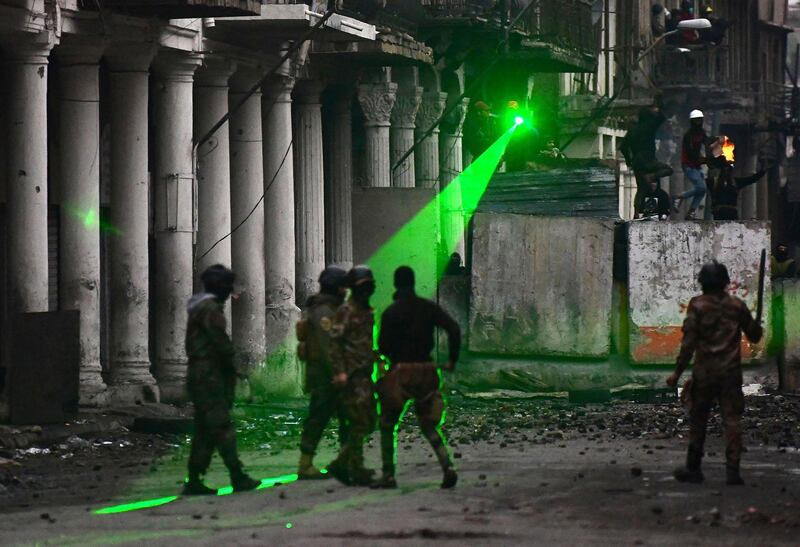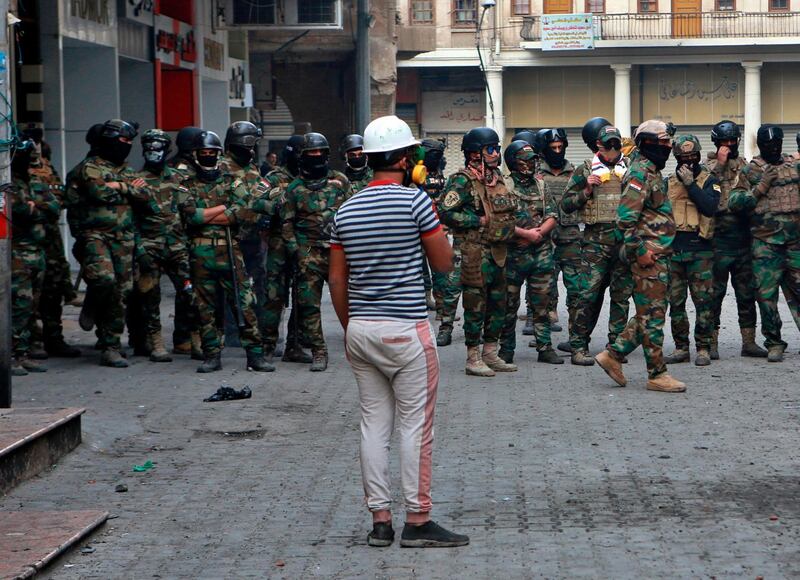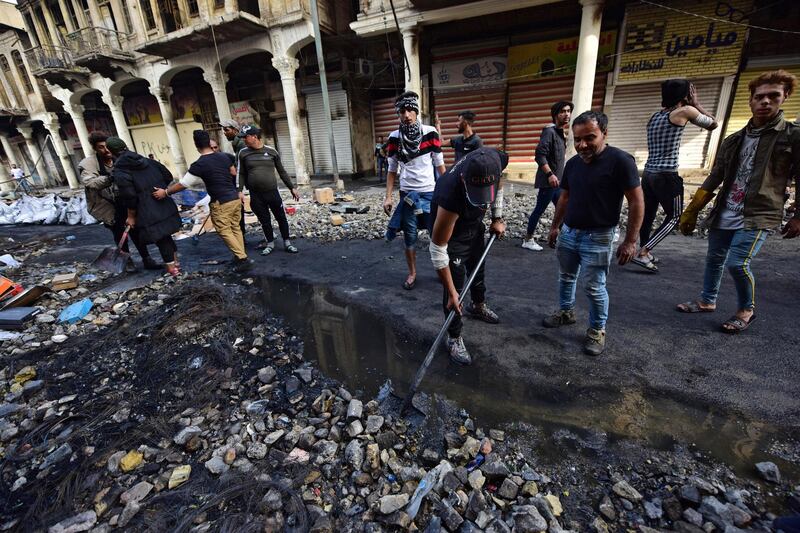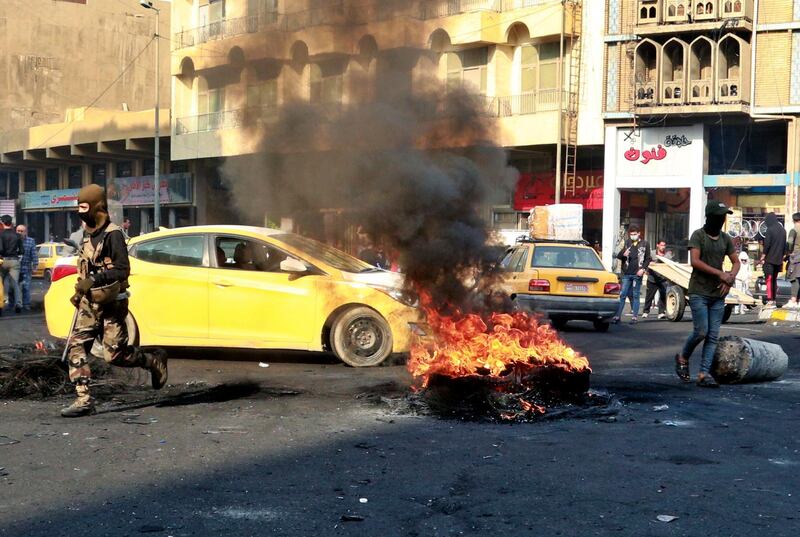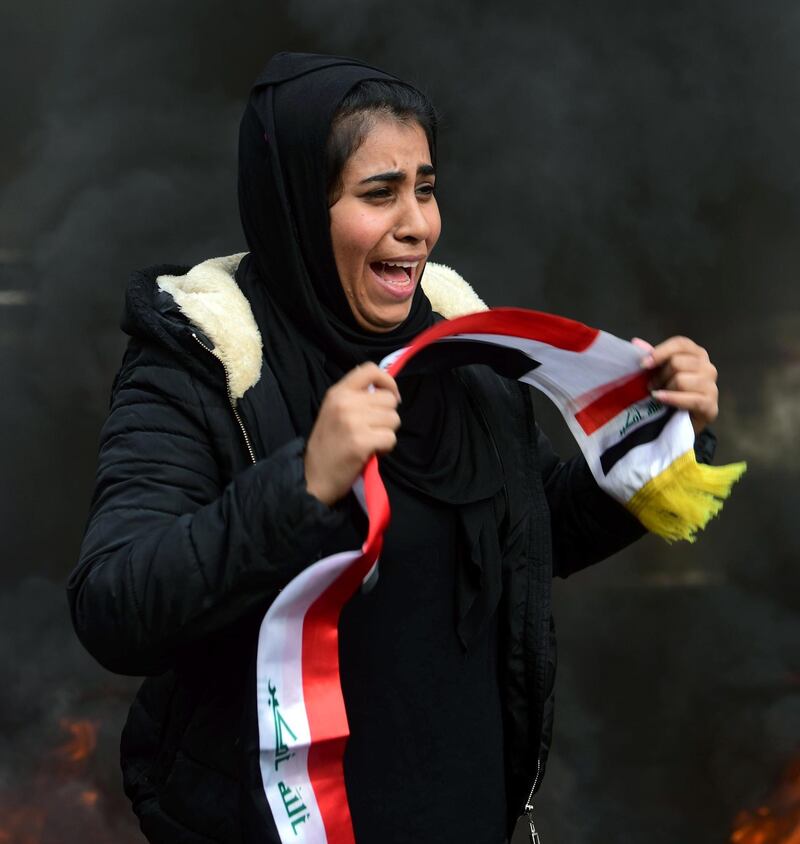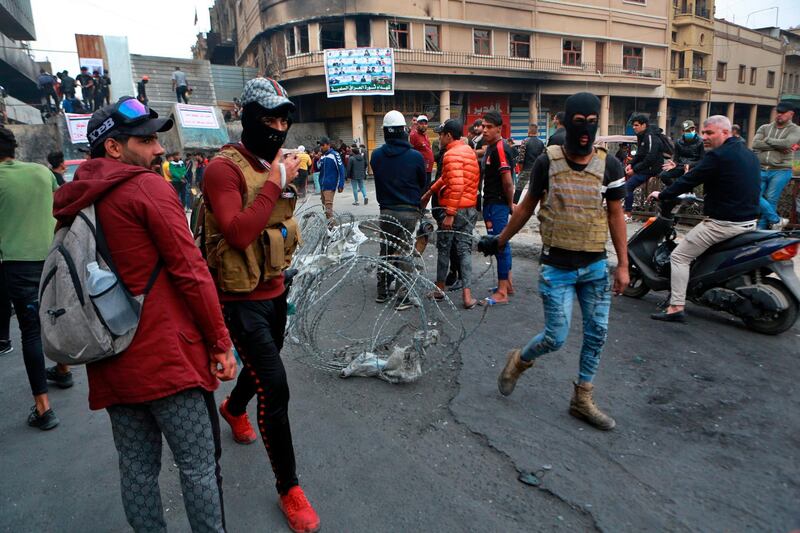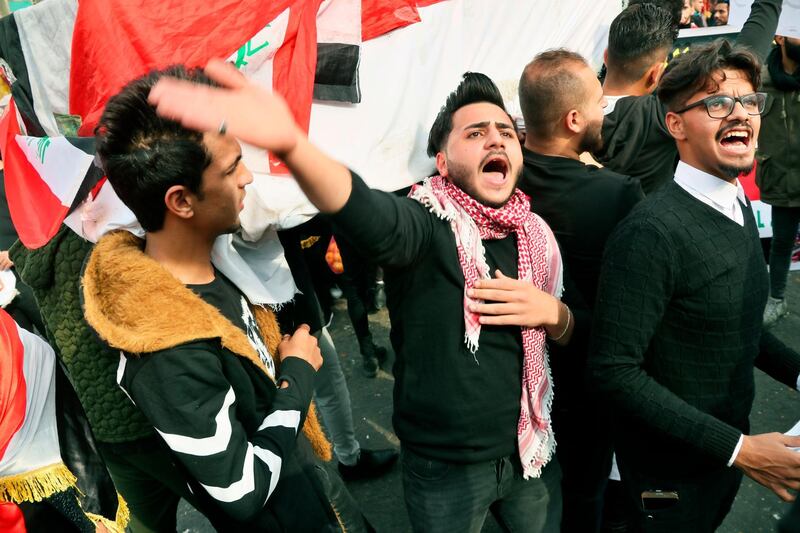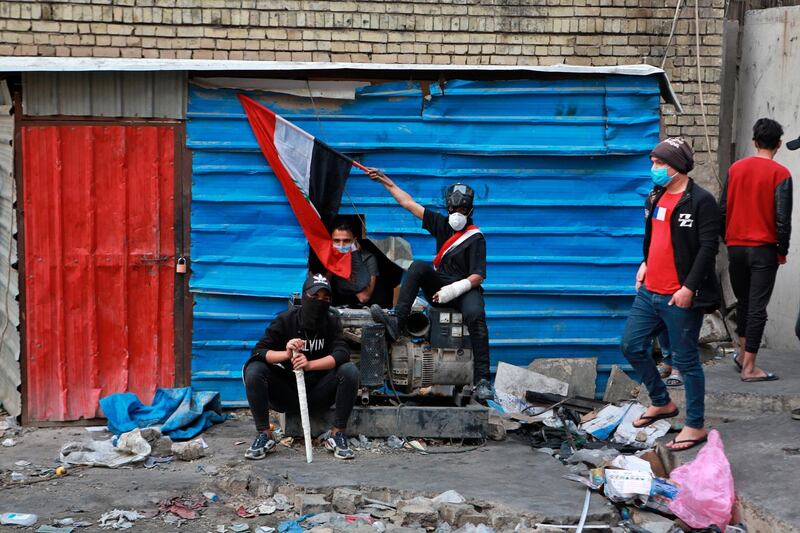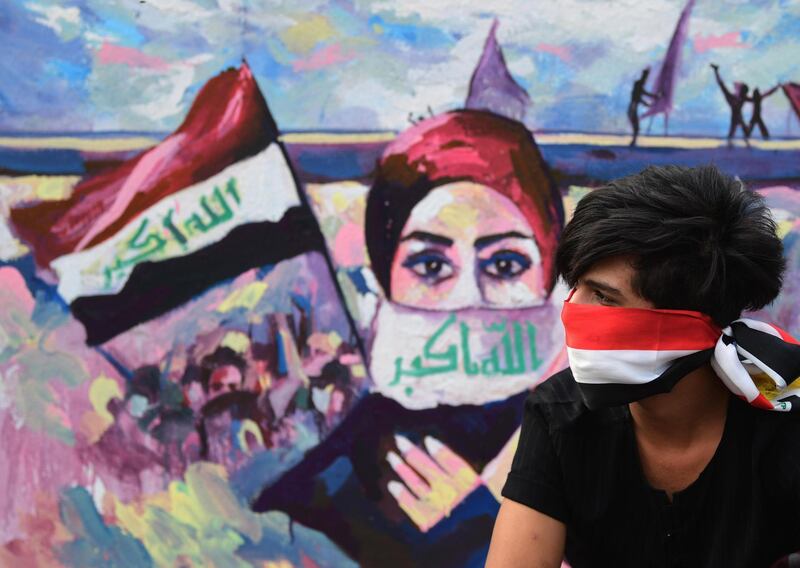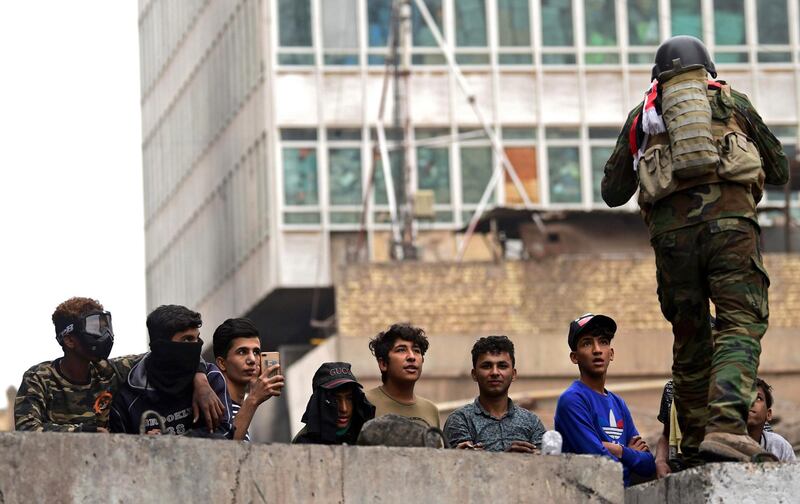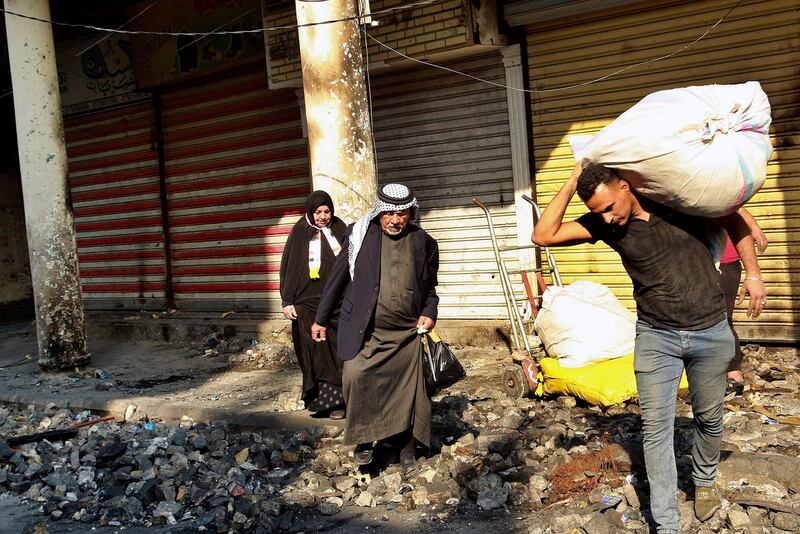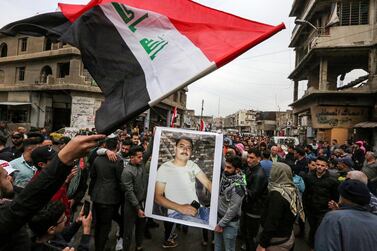Iraq must urgently pick a new prime minister, announce concrete measures to build trust and end the deadly response of security forces to street protests, the UN special envoy said on Tuesday.
Speaking by video link from Baghdad, Jeanine Hennis-Plasschaert told the UN Security Council that “band-aid” responses would not placate a population angered by corruption, partisan interests and Iranian interference.
More than 400 people have been killed and 19,000 wounded in a crackdown on two months of demonstrations, she said.
Ms Hennis-Plasschaert criticised security personnel for using excessive force from the start, causing the situation to “spin out of control”.
“Political leaders do not have the luxury of time and must rise to the moment,” she said of the choices facing the Iraqi government.
But so far, reform packages on housing, unemployment, finance and education have been perceived as “unrealistic or too little, too late”, as has the government's investigation into the suppression of public dissent.
“Who is smashing media outlets?” Ms Hennis-Plasschaert asked. “Gunning down peaceful protesters? Abducting civil activists? Who are these masked men, unidentified snipers, unknown armed actors?
“The shutdown of media outlets, internet and social media adds to the perception that the authorities have something to hide.
“We have heard plenty of words and gestures, but seen fewer concrete outcomes.
"The political class will need to lead by example, for instance by publicly disclosing their assets and by abolishing their so-called 'economic offices'."
After a surge in violence last week, Prime Minister Adel Abdul Mahdi formally resigned and talks to find a replacement have intensified this week in Baghdad.
Foreign interference, particularly from militias aligned with Iran, has been blamed for attacks on civilians protesting against the Iraqi government.
There seems to be no prospect that the meddling will end despite international calls.
Among those attending talks in the Iraqi capital are two key allies of Iraq's main Shiite parties: Iran's Revolutionary Guard commander Maj Gen Qassem Suleimani and Lebanese power-broker Mohammad Kawtharani, a high-ranking political source told AFP.
"Suleimani is in Baghdad to push for a particular candidate to succeed Abdul Mahdi," the source said.
Mr Kawtharani, who is in charge of activities in Iraq for the Lebanese militant group Hezbollah, “is also playing a large role in persuading Shiite and Sunni political forces on this”, the source said.
Despite the two countries fighting a brutal war between 1980 and 1988, Iran's influence in Iraq has grown since the overthrow of dictator Saddam Hussein in the US-led invasion of 2003.
Tehran exerts much more influence in Baghdad than the US, especially after the withdrawal of many American diplomatic staff from its embassy in the Iraqi capital in recent months.
Iraq's top diplomat to the UN, ambassador Mohamed Al Uloom, blamed “illegal groups” for infiltrating the protests, saying they had attacked “security forces and protesters alike”.
“The security forces are not engaging with the protesters or attacking them,” Mr Al Uloom said.
He denied that the security forces were responsible for the bloodshed and repeated that the government had ordered an investigation into it.
Iraq's political parties are said to be considering a six-month transitional Cabinet to oversee electoral reform before an early parliamentary vote.
But protests have continued in Baghdad and across the south.
In the city of Najaf, 35 protesters were wounded when armed guards in civilian clothes fired shotguns and tear gas on crowds near the tomb of Ayatollah Mohammed Baqir Al Hakim, a cleric who founded a major Shiite political party.
Najaf has been rocked by violence since protesters torched the Iranian consulate there last Wednesday, accusing Tehran of propping up the government.
In New York, US ambassador to the UN Kelly Craft said she was deeply alarmed by the response by the Iraqi security forces and non-state attackers against civilians.
“Iraq's neighbours must not meddle in its affairs,” Ms Craft said.
She said Iraqis had shown their frustration at Iranian interference.
The UK's permanent representative to the UN, Karen Pierce, called for “credible investigations” into recent the violence.
Tribal dignitaries have tried to mediate, calling on populist cleric Moqtada Al Sadr and his Saraya Al Salam (Peace Brigades) to intervene, Mr Al Sadr's office said. He has yet to respond.
On Monday night, riot police fired live rounds and tear gas at protesters in Karbala to the south of the capital, while federal police have sent reinforcements to the flashpoint city of Nasiriyah, scene of most deaths in recent days, and to the port city of Basra.
